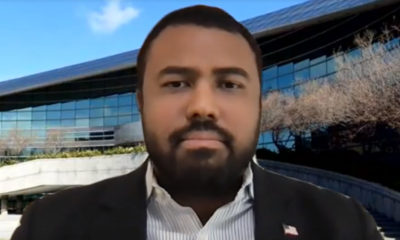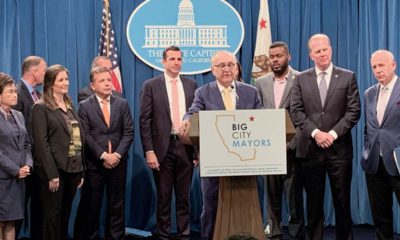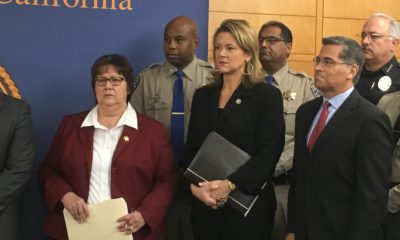Published
5 years agoon
By
gvwire
In a perfect world, Fresno and other inland California cities would not need tax-sharing incentives to convince major companies such as Amazon and Ulta to build distribution centers in their locales.
But, as we know, the world isn’t perfect.
And in California — where the poverty rate is among the highest in the country despite boasting the world’s fifth-largest economy — the gap between the haves and the have-nots is huge.
Thus, it should come as no surprise that Fresno leaders have used performance-based tax-sharing incentives to help lower the city’s traditional double-digit unemployment rate to a record low of 4.8%.
Now Mayor Lee Brand faces the prospect of losing this valuable tool because of Senate Bill 531 authored by state Sen. Steve Glazer, a Contra Costa Democrat.
Governor Gavin Newsom vetoed SB531 on Oct. 12. In his veto message, Newsom said SB531’s elimination of local sales tax agreements “is the wrong approach.” He called the limited use of the agreements “an important local tool that captures additional economic activity, particularly in rural and inland California cities that continue to face significant economic challenges like high unemployment rates.”

Wrote Glazer in a Fresno Bee op-ed: “These deals siphon money from every city in the state and give it away to some of the richest corporations in the world. … Ending these deals will prevent this practice, resulting in a net benefit of public services for everyone in California.”
Glazer’s bill, however, is a blunt instrument that will severely limit the ability of inland California cities to put more residents to work and help them enjoy better lives.
Brand hit the nail on the head when he said, “This bill basically prohibits cities in California from offering sales tax incentives to leverage their deals with e-commerce centers. This is one of our biggest tools, and they want to take it away from us.”
Moreover, Fresno’s deals have stringent benchmarks: “If the jobs aren’t created, the incentive isn’t offered. If fewer jobs are created, the incentive drops proportionately,” Brand says.
According to the city’s projections, its contracts with Amazon, Ulta, and The Gap will provide Fresno’s general fund with $99 million over 30 years. Fresno County and Fresno Unified School District are reaping additional tax dollars as well. Over their lifetime, these three contracts are projected to generate $322.4 million in new tax revenue for local governments.
All but lost in the conversation: Because of these agreements, Fresnans are working in jobs that pay more than minimum wage and come with benefits. Again, using City Hall’s calculations, the three e-commerce companies will generate nearly $5 billion in regional payroll over 30 years.
Fresno leaders are well aware the city needs to diversify its economy and attract higher-paying, less-polluting industries. But that won’t happen overnight. While a better educated and higher skilled workforce is being built year by year, the city must have a wide array of economic development tools to keep residents working — and off public assistance.


Is Newsom Recall a Coup Attempt? Fresno Councilmember Connects the Dots.


What’s Next for Lee Brand, Who Quietly Made Fresno a Better City?


California Wants Amazon to Answer on Warehouse Worker Safety During Pandemic


State Lawmakers Want Proof of COVID Spread by Businesses. Restaurants Say Fight.


District Attorney: ‘No Authority’ to Enforce Curfew Order


Dyer on COVID: Says He’s Feeling Worse. Former Commissioner Confirms Hosting Event.




